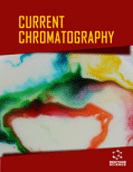Abstract
Background: Brewer’s spent grain (BSG) is an important by-product of the brewing process. It is suitable for food and biotechnological applications. The chemical composition of BSG varies depending on many factors. Little is known about low molecular weight extractives which can potentially be used as valuable phytochemicals with nutraceutical and pharmaceutical significance.
Objective: The lipid fraction of BSG was characterized in order to evaluate its potential as a source of valuable chemicals and to find potential biomarkers of spoilage.
Methods: The lyophilized biomass was extracted by accelerated solvent extraction. The extract was subjected to methylation and silylation. The lyophilized biomass was also subjected to mild alkaline saponification. The comparison of mass spectra obtained using the silylating agent N,O-bis- (trimethylsilyl) trifluoroacetamide and its deuterium-labelled form proved of special significance for structural identification.
Results: The majority of fatty acids (~85%) were bound in lipids; free fatty acids accounted for ~15%. The fatty acid pattern revealed typical even-over-odd predominance. An array of 3-hydroxy and cyclopropanoic fatty acids which have not been reported in BSG thus far, along with cisvaccenic acid, are promising candidates for biomarkers of bacterial contamination of BSG. These compounds could be unambiguously identified by adduct formation using dimethyl disulfide. Sterol and fatty alcohol patterns were very similar to those of barley. A series of alkylresorcinols and hydroxyalkyl- methoxy benzenediols could be detected, which have not been known to occur in BSG up to now.
Conclusions: Lipidic constituents in BSG contain valuable phytochemicals with nutraceutical and pharmaceutical significance. Certain lipidic surrogates might serve as biomarkers for bacterial and fungal contamination of brewer’s spent grain.
Keywords: Brewer’s spent grain, lipid soluble fraction, saponification, solvent extraction, pre-chromatographic derivatization, GC/MS analysis, biomarkers.
 39
39 2
2









